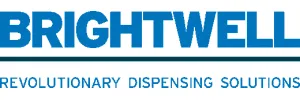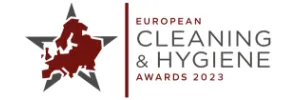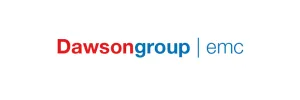News & Insights
Read the latest news from us and our clients across the globe

Posted on 22 October 2013 by adtrak.admin
Hard floors = hard work?
Architects are thinking big when it comes to hard floors and there are now more options than ever before. These floors can have a number of different benefits including style, durability, ease of maintenance, slip resistance and insulation.
Hard flooring also needs to stand up to a significant amount of varying traffic – from the footfall of staff and visitors, through to trolleys, forklifts and other machinery in locations such as schools, hospitals, hotels, offices and industrial settings.
ServiceMaster Clean’s technical manager, Ian McCormack, provides advice about caring for hard flooring.
The range of decorative hard floor materials available is now very broad, partly because of improved, specialist cutting machinery and finishing techniques. Options include various types of stone including limestone, slate and terracotta. These should be regularly cleaned using a slightly alkaline cleaner. Don’t use an acid solution on the stone as this can etch the surface, making it more fragile and it can also discolour some stones. Even mild acid could create a hole on a limestone finish. Moderate alkaline will clean better without having the damaging effect of acid.
The most widely chosen hard floor is luxury vinyl tile in wood or stone effect, available from Amtico, Kardean, Tarkett and Moduleo® to name a few. These tiles should be regularly cleaned, using dust mopping and wet cleaning. They also require on-going maintenance and a finish re-applied, to take off any scuffs and scratches.
Other choices are marble and granolithic floors, the latter being a mixture of cement and aggregate such as granite and other powdered stone. This flooring is typically used to provide a durable surface in areas such as factory floors. Terrazzo, which is a mix of cement and marble is another preference. Traditionally, taking care of marble involves a re-crystallisation process known as vitrification. The surface of marble can be likened to the surface of a vinyl record with grooves and peaks and troughs. Cleaning and maintaining a surface like this requires professional cleaning using acidic cleaners, and care is required to ensure the flooring isn’t damaged and doesn’t change colour. Marble and other luxury floor finishes represent sizable investments for facilities and it is important to look after them with professional care.
Wood and laminate flooring is another alternative. Wood can be sanded down, but when treating it you have to check whether the floor has been newly laid or sanded to a point where it is very smooth.
More and more varied
Requirements for the type of hard floor are increasingly varied. Appearance trends are a factor – with flooring specified to have either a high gloss, a semi-matt sheen or the appearance of natural wood or stone. Bright shine in a hotel foyer or large financial institution creates an instant impression, whilst a school will focus on durability and safety. Slip resistance is a key priority for many venues. Some customers want the flooring to be as scratch resistant as possible, whilst ease of maintenance is important, particularly in educational and healthcare settings.
The level and type of footfall need to be considered before specifying flooring, as the wrong floor in the wrong location can prove difficult to clean, maintain and treat effectively. The more traffic on a floor, the higher the need for maintenance, whilst heavily frequented areas will also require more resilient coatings. With the current economic climate, facilities have to make sure that their flooring lasts for as long as possible. The right cleaning procedures and equipment can assist greatly in this aim – replacing floors is a lot more expensive than regular maintenance. However, the technology for dealing with surfaces that were previously considered beyond repair has improved dramatically. Instead of tearing up damaged floors and supplying and laying new materials, restoration work can be undertaken, demonstrating the cost effectiveness of using trained professionals.
Durability should also be considered. It may come as a surprise to some, but stone is not a resilient floor. If a hammer or heavy object was dropped repeatedly on a stone floor, the stone would break, whereas it would bounce back from a surface consisting of vinyl floor tiles. Noise levels also need to be considered when specifying hard floors. Stone echoes sound, whilst wood and laminate will absorb most of the noise. You also need to consider heating and insulation issues – with wood being warmer than stone, for example.
Problems also arise when corners are cut and the right products aren’t used to look after a floor properly. It is essential that the contract cleaner has an exact specification for regular cleaning and periodic maintenance. The cleaner needs to have access to detailed written instructions for the cleaning of each particular area of floor and information about what is safe to use for cleaning. Damage can easily be caused by using the wrong type of cleaning solutions.
The precise cleaning instructions should also include details of which types of cleaning machines are permitted, as well as instructions on cleaning materials. Reputable machine manufacturers should provide detailed knowledge of which machines are suitable for a particular task and which are not. Scrubber dryers and buffing machines are capable of being individually set up or supplied in a setting particularly suitable for a given task.
Dos and don’ts
• Don’t use acid cleaners on stone as these can be highly abrasive and can discolour the surface
• Don’t put too much finish on floors. Imagine a sideboard that is topped up with too much wax. If you keep putting on wax in school corridors it will build up around the edges causing health and safety issues
• Don’t use a product that’s too strong for any cleaning of floors. A mix too rich in alkaline can lead to re-soiling – putting more and more solution on a mark will cause more damage than good
• Don’t put too much water on wood, as this can cause marking
• Some wood finishes respond well to oil and do require more regular top ups of fresh applications than you may think
• Do make sure that floor removal is rinsed clean and left neutral before new finish is put on the floor, as otherwise it will go cloudy and flake off. Using heavy equipment during this process can also cause damage
The cleaning operative must be trained to fully understand the science of how stone, wood or granolithic floors must be treated if they are to be kept in first-class condition. They must be educated as to why using inappropriate methods can cause serious damage to the floor or lead to an accident. Unless staff are aware of the potential problems of using an inappropriate chemical, they could be adding to a potential slip problem.
Some surfaces are more delicate than others and operator knowledge is crucial to ensure that there is no damage to the floor. Always use qualified experts who have the expertise to use the right cleaning methods for a range of different surfaces such as marble, granite or limestone flooring, remove scratches or restore a high polish. Vinyl floor surfaces may require deep scrubbing using a rotary machine and a suitable brush head to properly clean the floor. Other floors may benefit from removing damaged seals and applying fresh coatings.
Stripped back
Most building owners want to protect their flooring with some form of coating, but the floor will need to be stripped back to its original state fairly frequently so the varnish can be reapplied. Problems can occur if you leave a floor for long periods without maintaining it.
Health and safety aspects need to be carefully considered and followed during the course of the stripping of floors as surfaces will be very slippery and will need to be cornered off, so the public are kept safe.
Your cleaning service supplier should take time to understand the company they are working for and approach the work with enthusiasm. Specialist products may be required to clean specific flooring and surfaces. The amount of footfall will also have a bearing on the cleaning schedule, but whichever floor surface you choose, if cleaning operations are carried out correctly, factors such as wheeled traffic and high footfall should not be an issue.
Further information about ServiceMaster Clean’s full range of services can be found at: www.servicemasterclean.co.uk or by calling 0845 762 6828.
Published in European Cleaning Journal – October 2013
Experts in Public Relations Services & Communications Management
Our ServicesGenuine industry specialists in cleaning and hygiene, environmental and recycling, and facilities management
Our Sectors












